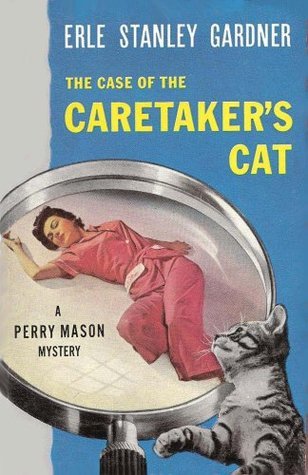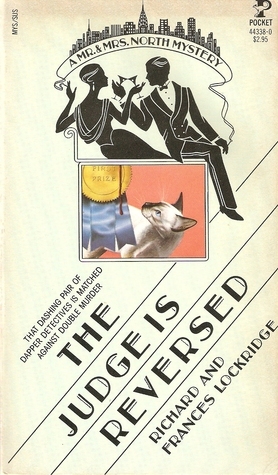Mrs. Melita Pargeter, a vibrant woman in her mid-sixties, decides to move into the very well-to-do Devereaux Hotel on England’s south coast. Her arrival sparks gossip amongst the other well-bred guests and staff due to her forthright demeanor, quick laugh, and watchful eye. The residents live in a cossetted well, ordered life of genteel meals, drinking, and light banter. However, the calm veneer of life at the Devereaux Hotel is peeled back when one of the residents, Mrs. Selsby, is found dead at the bottom of the stairs. The police and other residents believe it to be a sad accident- Mrs. Selsby was not too sure of foot, and the stairs were dark, but Mrs. Pargeter has a nagging feeling that Mrs. Selsby was murdered. Equipped with a lifetime of truisms supplied to her by her late husband- who wasn’t a criminal, mobster, or rotten egg- Mrs. Pargeter decides to investigate what is happening at the Devereaux Hotel.
The Review
A Nice Class of Corpse, the first book in the Mrs. Pargeter series, offers a light, breezy read. The book’s charm lies in the enigmatic Mrs. Pargeter, always impeccably dressed, carrying a skeleton key, and spotting fake jewelry. Her Essex accent and colorful past, which often lead her to unsuitable people, add a layer of intrigue to her character. Your appreciation of the book will also depend on your tolerance for the priggish fake genteelity of the British class system.
Mrs. Pargeter, a wealthy woman with a potentially ill-gotten fortune, is a delightful character. Her interactions with the more well-bred than rich Mrs. Naismith, the owner of the Deveruaux Hotel, who is oppressively class-conscious, provide an interesting contrast. The Deveruaux Hotel, in reality, is just a gussied-up boardinghouse. Mrs. Naismith’s reproachful character is a drag, and we’re meant to be aggrieved by her, which I am.
I’ve noticed that many British cozy mysteries from the mid-eighties to early nineties have a penchant for exploring the intricate and often absurd social rules of the British middle class: their fixation on accents, conduct, and above all, wealth. As an American reading A Nice Class of Corpse in 2024, I must admit that some of these nuances escape me and the story feels a bit dated. However, I can appreciate that during its original publication, the satire and meticulously polite exchanges between Mrs. Pargeter and Mrs. Naismith would have been spot-on for the British audience, adding a delightful touch of humor to the narrative.
Even though some of the social etiquette that informs the characters’ actions is befuddling to me- Simon Brett is excellent at writing well-imagined, if slightly theatrical, characters. The old lady who smells like stake urine, the old colonel who delights in telling the same jokes every day, the polite banter between acquaintances who have lived too long together, the scheming to get better rooms, food, drinks, and little side hustles with the staff who go along to get along. Hilarious but realistic, the clientele of the Deveraux leap off the page.
There is an underlying tension from the start–Mrs. Pargeter doesn’t really belong to this set- not because of class or money or even temperament, she’s just too alive and not yet ready to settle down and exist through the golden twilight of her life. She’s got a lot to live for and for the moment it’s solving Mrs. Selsby’s murder. The plot is engaging, with twists and turns that keep you on the edge of your seat, and a tension-filled narrative that will leave you eager to turn the next page.
I’m particularly drawn to the way Mrs. Pargeter conducts her investigations. She possesses a natural charm and a knack for coaxing the truth out of people. Her directness is never harsh, and she’s not afraid to expose liars or assert her authority, even in the face of the police. She’s cautious of outsiders and relies on her instincts; there’s no sidekick or assistance from law enforcement. When the situation calls for it, she takes matters into her own hands—sneaking around, breaking into rooms, tailing suspects, and confronting potential killers. Mrs. Pargeter is a truly capable detective.
Throughout A Nice Class of Corpse, it’s clear that Simon Brett has a genuine love and appreciation for Golden Age mysteries. Mrs. Pargeter is reminiscent of Miss Marple, but with a bit more zest and a slightly shady past. He weaves in classic mystery tropes, such as unknown narrators penning their murderous thoughts in a diary, which the reader, but not Mrs. Pargeter, is privy to. The diary entries are incredibly dramatic- the killer revels in their crimes- and their descent into utter madness is vividly portrayed. Brett also plants numerous red herrings, false notebooks, and diaries to throw the reader off the killer’s trail. He even includes several false endings where a potential suspect is revealed to be innocent, keeping the reader on their toes.
I found A Nice Class of Corpse entertaining and am glad that subsequent books will not be at The Devereaux Hotel, which I found to be the weakest part of the book and dragged down Mrs. Pargeter’s flamboyant nature.
It’s a fun read that entertains. It’s great for a beach read or a light, cozy mystery to pass the time.

Simon Brett
After graduating from Oxford, Brett began his career in broadcasting. He worked as a producer for BBC Radio and later for London Weekend Television. His experience in broadcasting significantly influenced his writing style, particularly his knack for dialogue and narrative pacing.
Brett’s debut novel, “Cast, In Order of Disappearance” (1975), introduced readers to Charles Paris, a somewhat disillusioned actor who moonlights as an amateur sleuth. This book was the first in a long-running series that has remained popular for its wit, humor, and clever plotting.
He is also known for other successful series, such as the Fethering Mysteries and the Mrs. Pargeter series. The Fethering series, starting with “The Body on the Beach” (2000), is set in a fictional English village and features amateur detectives Carole Seddon and Jude. The Mrs. Pargeter series, on the other hand, revolves around the widow of a notorious criminal who uses her late husband’s underworld connections to solve crimes.
In addition to his crime novels, Brett has written several standalone novels, plays, and children’s books, showcasing his versatility as a writer.
Simon’s background in radio production has also led to the creation of several acclaimed radio plays and series. He produced and wrote for the “Hordes of the Things” (1980), a satirical radio series, and “After Henry”, which was later adapted into a successful television series.
Simon Brett has received numerous accolades throughout his career. He was honored with the Crime Writers’ Association’s Diamond Dagger in 2014, recognizing his lifetime achievement in the field of crime writing. His contribution to literature and broadcasting has been widely acknowledged and celebrated by peers and audiences alike.
You can read more about Simon Brett at his website here.





Leave a comment